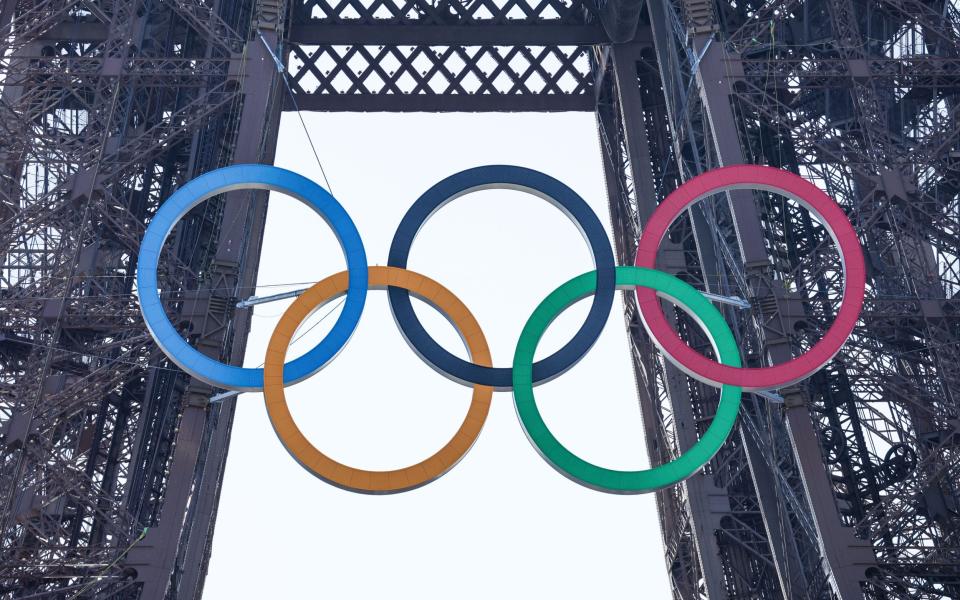Trans athletes dehumanised by term ‘biological male’, says Olympics

The International Olympic Committee has been accused by Martina Navratilova of waging a “1984 version of war on women” after asking journalists attending this summer’s Paris Games not to use terms such as “born male” or “biologically male” to describe transgender athletes. It argued that such labels were “dehumanising” and constituted “problematic language”.
In a 33-page “Portrayal Guidelines” document, the IOC have told the 20,000-strong media contingent that “a person’s sex category is not assigned based on genetics alone” and “it is always preferable to emphasise a person’s actual gender rather than potentially calling their identity into question by referring to the sex category that was registered on their original birth certificate”.
Navratilova, the nine-time Wimbledon champion and a consistent voice in upholding the integrity of women’s sport, responded witheringly to these statements, saying: “The IOC has been captured. This is 1984 version of war on women. Total erasure.”
Their advice flies in the face of actions taken by the major Olympic sports of athletics, swimming and cycling, all of which have revised their transgender policies to prioritise sex over gender and ensure fairness for women in their own category. In 2022, World Swimming was forced to act after Lia Thomas went from being the 554th-ranked male in the United States in the 200-yard freestyle to winning a national collegiate title in the equivalent female race.
The IOC’s vacillation over trans athletes lies behind much of the discord and confusion that has engulfed sport on this issue. In 2004, it endorsed a policy for post-operative transsexuals to enter women’s events, insisting that the situation would be “extremely rare”. By 2015, it had begun recommending testosterone suppression below 10 nanomoles per litre as a solution, despite the average range for women being between 0.5 and 2.4.
At the Tokyo Olympics in 2021, their medical director, Dr Richard Budgett, declared: “Everyone agrees trans women are women.” Except many women agreed nothing of the sort, with France’s Marion Clignet presenting a survey to the UCI last year to show that 92 per cent of female cyclists favoured a ban on biological males from their events.
The listing of “born male” or “genetically male” under terms to avoid in Paris – along with a blanket guideline to replace “identifies as” with “is” – has sparked outrage among many ex-Olympians. Inga Thompson, a cyclist who represented the US at three Olympics, said: “The IOC media have allowed themselves to be bought, because deep down, they never wanted women to be in sports. The ultimate misogynist movement.”
Alison Sydor, who competed for Canada in mountain biking at Atlanta 1996, pointed out that the IOC had cited GLAAD, an American LGBT advocacy group, as a leading authority on the subject. Only this week, GLAAD promoted a T-shirt bearing the message: “No TERFs (trans-exclusionary radical feminists).” “The IOC sure know how to pick a partner to lecture everyone about dehumanising language,” Sydor wrote.
In Tokyo three years ago, activist leaflets from organisations such as GLAAD were left on the desks of reporters covering the story of Laurel Hubbard, the New Zealand weightlifter who was born male and won a place at the Olympics after identifying as female. The literature sought to instruct journalists as to what terminology to employ, including in the “terms to avoid” section: “Born male/born female. No one is born with a gender identity.”
Among the latest alternatives to “biological male” proposed by the IOC are “transgender man” and “transgender person”. Sharron Davies, the British swimming champion who took silver in Moscow in 1980, said: “Luckily athletics, cycling, rugby and swimming have stopped males from cheating in women’s sport, but there will be males in other women’s races that journalists now are advised not to tell you about.”
Cathy Devine, a former lecturer in sport and physical activity at the University of Cumbria, branded the IOC’s document “breathtakingly sexist and complete propaganda”. Despite the ferocious backlash, Yiannis Exarchos, chief executive of Olympic Broadcasting Services, promised that his team in Paris would use the guidelines as “our Bible”. “We call on our colleagues across all media to embrace them,” he said.

 Yahoo Sport
Yahoo Sport 






































